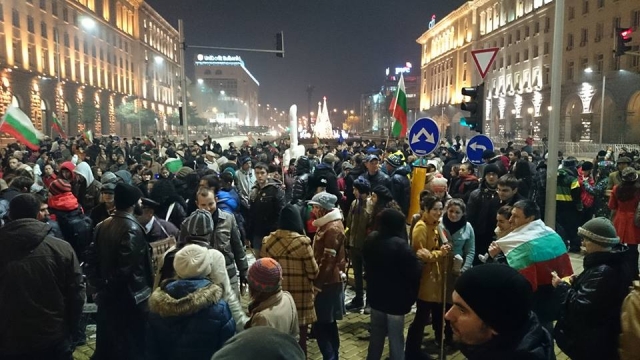Anastasia Balezdrova
On the threshold of 2014, the European Union (EU) and its member states are facing many different challenges. On the one hand, the European financial crisis and wave of refugees from the Middle East and North Africa on the other, and the election of members of the new European Parliament. The concerns that the crisis and the increased migration to Europe will intensify the political extremes in the EU are significant. At the same time, it is expected that an insignificant number of European citizens will take part in the elections as they feel that the EU cannot, or does not want to, solve the real problems.
 Journalist and long-time correspondent in Brussels, Veselin Zhelev, talks with GRReporter about the situation in Europe and Bulgaria.
Journalist and long-time correspondent in Brussels, Veselin Zhelev, talks with GRReporter about the situation in Europe and Bulgaria.
The Bulgarian government is clearly dependant on certain corporate and financial groups, and even on mafia. Is Brussels aware of this? Does it intend to take any measures?
Bulgaria and Romania are being monitored by Europe in terms of justice and home affairs, the main reasons for this being the organised crime and corruption. The European Commission is to publish another report on this monitoring in January. So far, the results of this seven-year monitoring have been very modest. The administration in Brussels is just reporting to the member states that it is doing something in order for the two countries to fill the gaps in their pre-accession preparation. The governments of these two countries in turn are pretending that they are making some efforts in the same direction, using the monitoring on the part of Europe for short-term internal political purposes, such as to indicate their opponents as an object of criticism or distrust on the part of Brussels.
This is against the interests of Bulgaria because it enables the old member states that oppose the expansion of the EU and the Schengen area to take advantage of the situation. None of the three regular governments nor the caretaker one have worked hard to stop the mechanism during the seven years of EU membership. I think that they consider it convenient. They think that it allows them to use Brussels against their opponents. To be honest, in a number of cases, such as the applications of Veneta Markovska and Delian Peevski, this mechanism acted as a "handbrake". I do not want to think how far the current government would have gone if this mechanism did not exist. Generally, it does not cure the chronic diseases in Bulgarian society, which you mention in your question.
The truth is that the so-called mechanism for cooperation and verification does not limit the Commission in terms of the measures, which it can propose to the member states in relation to Bulgaria and Romania. It had already applied the most painful of them, namely the suspension of the payments of the Euro funds, again while the Bulgarian Socialist Party (BSP) and the Movements for Rights and Freedoms (MRF) were in power. I do not exclude the possibility of us facing this measure again. However, let us see the report.
I would like to say something in a broader perspective. Over the past five years, understandably, Europe has been occupied with the crisis in the euro zone. This is an existential crisis and the developments in the new countries such as Bulgaria, Romania, Slovakia, Hungary and others have remained in the background. These countries are experiencing significant problems with the functioning of democracy, with the respect of fundamental EU principles such as freedom of expression, human rights, rule of law, for example, and they sometimes drastically fail to meet the EU requirements that apply to candidate countries. The European institutions responded to such events in Romania and Hungary but in terms of Bulgaria, their annoyance and neglect are fully apparent. Sometimes I think that Europe is sleepwalking, thus missing the beginning of yet another crisis, such as the bankruptcy of political newcomers like Greece, Ireland, Portugal, Spain and Cyprus.
Why doesn’t the political class in Bulgaria seem to be particularly concerned despite the protests that lasted for more than half a year?
I think that we cannot draw a general conclusion about the entire political class. This would be bad for those of its members who do not see, or pretend that they do not see, the growing gap between them and society. 48% or over three million voters in Bulgaria did not vote in the last elections. They do not have their representative in the so-called political class. This is a clear indicator of the representativeness, and therefore, of the quality of Bulgarian democracy. It is a cliché to repeat that it is a facade, but it really is a facade.

Photo: Vasil Garnizov